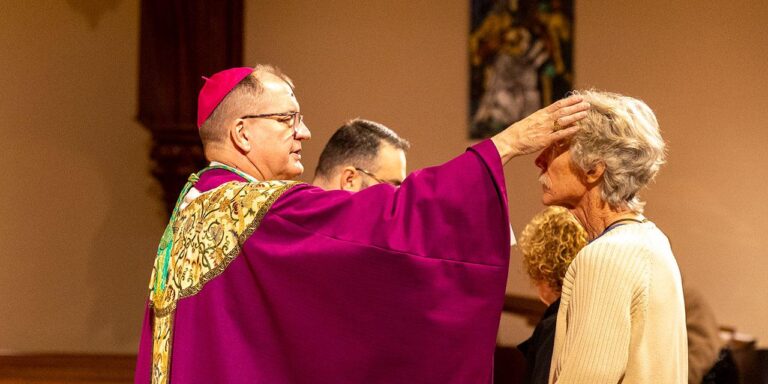Controversy Surrounds New Law Requiring Priests to Report Child Abuse Confessions
Federal Government Decries Law as Targeting Catholic Clergy
Federal officials have publicly criticized a recently enacted state law that compels priests to disclose child abuse admissions made during confession, branding it as discriminatory against Catholic clergy. They contend that this legislation infringes upon the inviolable seal of confession, a fundamental tenet of Catholicism, thereby potentially breaching constitutional guarantees of religious liberty. This dispute has ignited a broader conversation about how to reconcile child protection imperatives with the preservation of religious rights.
The Catholic Church has responded with a resolute position, threatening to excommunicate any priest who abides by the reporting mandate. Church authorities argue that violating the confidentiality of confession constitutes a grave spiritual transgression. This standoff underscores several critical issues:
- Constitutional challenges: Potential conflicts between religious freedom and state law.
- Ethical dilemmas: The tension between ecclesiastical doctrine and civil duties to protect children.
- Implementation hurdles: Enforcement complexities amid clerical resistance.
| Group | Stance | Primary Concern |
|---|---|---|
| Federal Authorities | Criticize law as discriminatory | Religious freedom infringement |
| Catholic Church | Threatens excommunication | Sanctity of confession confidentiality |
| Child Advocacy Groups | Support the legislation | Child safety and protection |
Church Threatens Severe Penalties for Priests Reporting Abuse
The federal government’s characterization of the new child abuse reporting law as “anti-Catholic” has intensified the conflict between state authorities and the Catholic Church. This statute requires clergy to report any child abuse confessions, a practice that has traditionally been protected by religious confidentiality. While government officials emphasize the law’s necessity for safeguarding children and ensuring justice, church leaders view it as an infringement on religious autonomy.
In response, the Church has declared it will impose excommunication on any priest who complies with the reporting requirement. This unprecedented move raises profound ethical and legal questions for clergy caught between civil mandates and religious loyalty.
- Compulsory reporting of abuse revealed in confession
- Excommunication threat for compliance
- Federal accusations of religious discrimination
| Stakeholder | Position | Main Concern |
|---|---|---|
| Federal Government | Endorses law | Child protection and justice enforcement |
| Catholic Church | Opposes law | Preserving sacramental secrecy |
| Priests | Conflicted | Navigating legal duties and religious vows |
Legal Analysts Debate Effects of Confession Protections on Abuse Cases
Legal scholars remain divided over the consequences of laws protecting the confidentiality of confessions, especially regarding their impact on child abuse investigations. Critics warn that such statutes may create near-impenetrable barriers, allowing abusers to evade scrutiny by hiding behind religious privilege. This could perpetuate environments where victims’ voices are silenced and justice is obstructed. Key concerns include:
- Potential obstruction of criminal investigations into child abuse.
- Legal ambiguities prioritizing religious confidentiality over child welfare mandates.
- Prosecutorial challenges when evidence linked to confessional secrecy is inaccessible.
Conversely, supporters argue these laws are essential to safeguarding religious freedoms and maintaining the sanctity of confession. The Catholic Church’s stern threat of excommunication for compliance further complicates the issue, highlighting the intricate balance between faith, law, and morality. Below is a summary of perspectives from key stakeholders:
| Stakeholder | Primary Concern | View on Confession Law |
|---|---|---|
| Federal Authorities | Enforcing child protection and federal oversight | Consider law discriminatory and obstructive |
| Catholic Church | Maintaining religious doctrine and confidentiality | Opposes law, threatens excommunication |
| Legal Experts | Balancing religious rights with legal accountability | Divided opinions |
Strategies for Harmonizing Religious Rights with Child Protection
To effectively protect children while respecting religious freedoms, lawmakers should pursue collaborative approaches that engage faith communities in crafting policies. One promising strategy is to involve religious leaders in the legislative process to develop protocols that honor the confidentiality of confession but do not allow it to shield abuse. Educational initiatives aimed at clergy and religious organizations about mandatory reporting and child welfare can promote transparency and responsibility from within.
Additionally, government agencies should enhance training for child protection personnel to sensitively navigate religious contexts during investigations. Establishing clear legal parameters that permit breaching confidentiality only in cases of immediate danger, alongside secure reporting mechanisms, can help balance competing interests. The table below outlines potential policy options and their benefits:
| Policy Approach | Benefit | Affected Parties |
|---|---|---|
| Exceptions to Mandatory Reporting | Balances child safety with religious rites | Clergy, victims, legal system |
| Faith Leader Engagement Forums | Fosters trust and consensus on safeguarding | Religious groups, policymakers |
| Specialized Training for Investigators | Ensures culturally competent abuse investigations | Child welfare agencies, families |
| Clear Legal Guidelines on Confidentiality | Reduces enforcement ambiguity | Courts, clergy, social workers |
Conclusion: Navigating the Intersection of Faith, Law, and Child Safety
The intensifying dispute over the child abuse confession reporting law reveals deep-seated tensions between federal authorities and the Catholic Church. With the government condemning the law as discriminatory and the Church threatening excommunication for compliance, this conflict exemplifies the complex interplay of religious liberty, legal responsibility, and the rights of abuse victims. As both sides brace for potentially protracted legal and ethical battles, the outcome will likely influence future legislation aimed at protecting vulnerable populations nationwide. Ongoing coverage will track developments in this critical and evolving issue.







